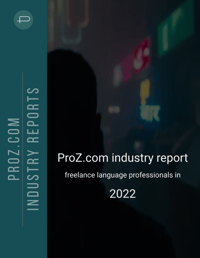Actual post-editing work (MTPE)...
I'm training automated translation engines and I therefore know firsthand these need to be 'tweaked' to deliver proper suggestions.
I am used to post editing now more than ever, and that has been a significant contribution to the number of words I am able to translate per day.
 Any significant productivity booster is going to require a certain amount of investment before it begins to pay off, because nothing is really free. The investment can be monetary-- in most cases, you have to pay for your CAT tool, or for a new translation management system (TMS). But the big investment here is time and training. It takes time to become proficient in your first CAT tool; subsequent CAT tools you add to your repertoire will usually require less of a time investment because you’ve already invested time learning the ins and outs of one. Likewise, when an agency implements a new TMS, they may actually take a temporary hit on productivity until they learn how to best utilize the tool for their needs, train their people in its use, and set new processes, and then that investment can start paying off in better, more efficient workflows. Unfortunately, you can only judge any real returns in productivity if you go through with the investment. Those who turn back too early usually only have a frustrating experience as a point of comparison for that new tool or process.
Any significant productivity booster is going to require a certain amount of investment before it begins to pay off, because nothing is really free. The investment can be monetary-- in most cases, you have to pay for your CAT tool, or for a new translation management system (TMS). But the big investment here is time and training. It takes time to become proficient in your first CAT tool; subsequent CAT tools you add to your repertoire will usually require less of a time investment because you’ve already invested time learning the ins and outs of one. Likewise, when an agency implements a new TMS, they may actually take a temporary hit on productivity until they learn how to best utilize the tool for their needs, train their people in its use, and set new processes, and then that investment can start paying off in better, more efficient workflows. Unfortunately, you can only judge any real returns in productivity if you go through with the investment. Those who turn back too early usually only have a frustrating experience as a point of comparison for that new tool or process.-
A deep understanding of the end client and their needs.
-
The machine is adequate or has been prepared. MT engines come in all shapes and sizes, and it is possible that the engine needs to be prepared for certain types of work beforehand. In some cases, the text involved also needs to be prepared.
-
The humans are adequate and have been prepared. This includes clear communication regarding sources, intended output, and level of quality expected. It may also mean that the professional dealing with the MT output has training or experience in doing what is expected of them, on the system where they are expected to do it. It might not be enough that they normally do “regular” human translations on their own.
Quotes from language professionals:
One of my agency clients has significantly increased MT usage and claims a 30% discount in comparison to the regular translation rate, even for marketing texts for which it is not suitable at all. I have made them aware of that fact [...] eventually they stopped using MT for this client's texts. After that, my regular translation rate for this client was increased by 1.5 cents per word for this client. Thus, at first, I was negatively affected but in the end, it had a positive effect in this case.
This is an excerpt of the most recent ProZ.com industry report. To read the full report, you can go to https://www.proz.com/industry-report/
ProZ.com industry reports are periodic publications that take a look at trends, challenges, and opportunities in the language services industry, from the perspective of the freelance language professional. ProZ.com paying members enjoy immediate, full access to these reports.
Take it or leave it, MT is here to stay. There is still increasing demand for highly-talented human translators too, though. Make sure you are showcasing yourself as such through your ProZ.com profile. If your profile is empty, you may as well be a bot in a potential client's eyes...
If you are not yet a ProZ.com member, you can start now, with special discounts on membership and training until December 15th. Find out more »



